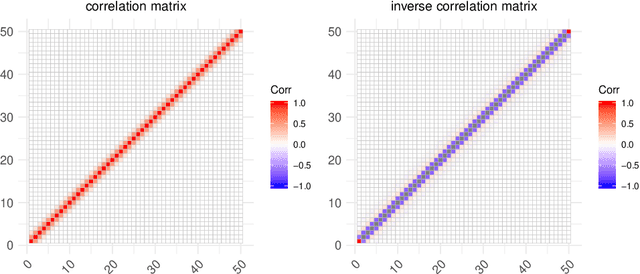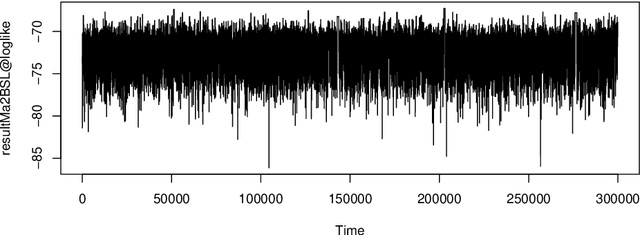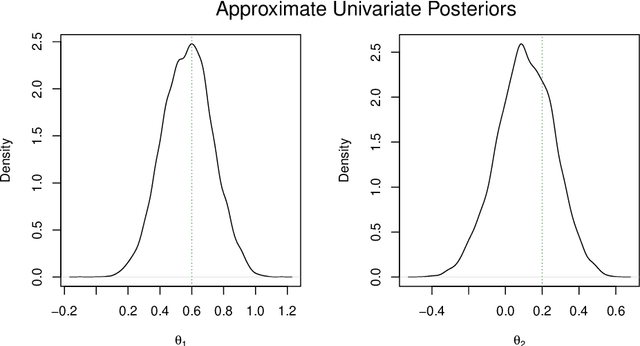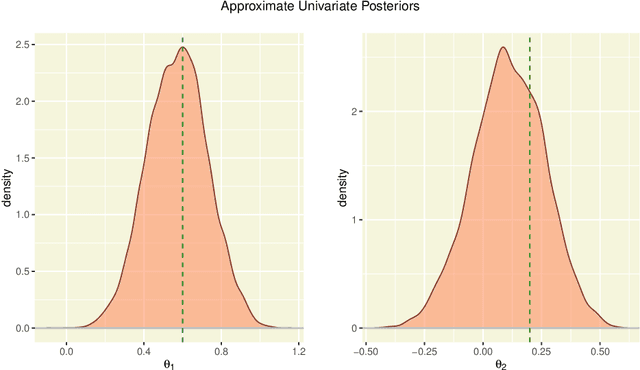Ziwen An
BSL: An R Package for Efficient Parameter Estimation for Simulation-Based Models via Bayesian Synthetic Likelihood
Jul 25, 2019



Abstract:Bayesian synthetic likelihood (BSL) is a popular method for estimating the parameter posterior distribution for complex statistical models and stochastic processes that possess a computationally intractable likelihood function. Instead of evaluating the likelihood, BSL approximates the likelihood of a judiciously chosen summary statistic of the data via model simulation and density estimation. Compared to alternative methods such as approximate Bayesian computation (ABC), BSL requires little tuning and requires less model simulations than ABC when the chosen summary statistic is high-dimensional. The original synthetic likelihood relies on a multivariate normal approximation of the intractable likelihood, where the mean and covariance are estimated by simulation. An extension of BSL considers replacing the sample covariance with a penalised covariance estimator to reduce the number of required model simulations. Further, a semi-parametric approach has been developed to relax the normality assumption. In this paper, we present an R package called BSL that amalgamates the aforementioned methods and more into a single, easy-to-use and coherent piece of software. The R package also includes several examples to illustrate how to use the package and demonstrate the utility of the methods.
 Add to Chrome
Add to Chrome Add to Firefox
Add to Firefox Add to Edge
Add to Edge